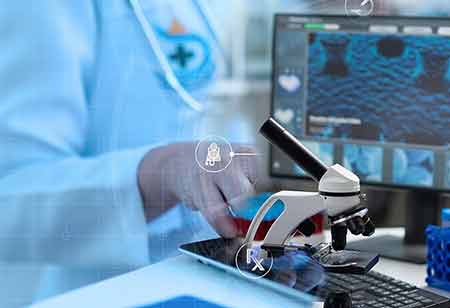Thank you for Subscribing to Healthcare Business Review Weekly Brief
Medical Billing and Coding in the Modern Era

Be first to read the latest tech news, Industry Leader's Insights, and CIO interviews of medium and large enterprises exclusively from Healthcare Business Review
Thank you for Subscribing to Healthcare Business Review Weekly Brief

By
Healthcare Business Review | Tuesday, July 07, 2020
Stay ahead of the industry with exclusive feature stories on the top companies, expert insights and the latest news delivered straight to your inbox. Subscribe today.
The rapid advancement in technology has allowed the development of high-tech medical equipment, cost-effective medicines, and innovative procedures that have streamlined every medical function and improved healthcare service quality.
FREMONT, CA: To effectively meet patients' requirements and maintain its position in the market, the healthcare system must constantly change and advance at the same rate as technology. The healthcare system has faced various difficulties recently, including
• Rising medical expenses
• Inadequate patient-specific care
• Ineffective procedures
• The growing number of patients with both acute and chronic illnesses
With the coronavirus pandemic, the healthcare systems' capacity and capability are being put to the test, and many health centres are overworked and understaffed to handle the escalating patient load. Both patients and healthcare professionals are directly impacted by the evolving developments in the medical area. From the perspective of the patient, healthcare centres on the
• Insurance coverage, or the ability of the patient to pay for the costs of either acute or chronic illness treatment
• A close-by supply of medical facilities and services
• Early illness detection, treatment, and prevention
Wide-ranging healthcare tasks like data collecting, research, medical billing and coding, remote monitoring, adherence to health rules, and rapid diagnosis and treatment have all benefited greatly from digital technology. The major benefit of technology is that it streamlines every task, saves time, lessens mechanical paperwork, and eliminates any errors that can have an impact on the overall medical procedure. A medical facility, such as a hospital or doctor's office, is in charge of providing patients with the proper healthcare services and managing their finances to pay the healthcare providers' salaries and keep the cost of treatment under control.



